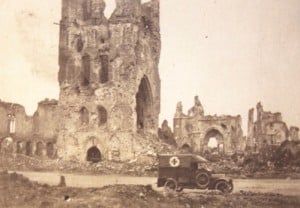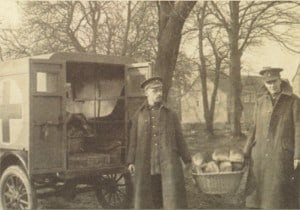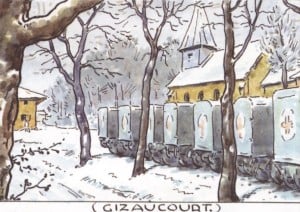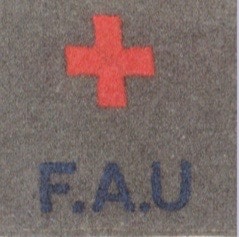The traditionally pacifist Quaker movement (Religious Society of Friends) was split in its response to a war that many felt was just and patriotic. Some Quakers did enlist. Others felt they could not contribute in any capacity. Many compromised by taking positive action to relieve hardship and suffering, collecting money or serving with the Friends’ Ambulance Unit (FAU) and the Friends’ War Victims’ Relief Committee (FWVRC).
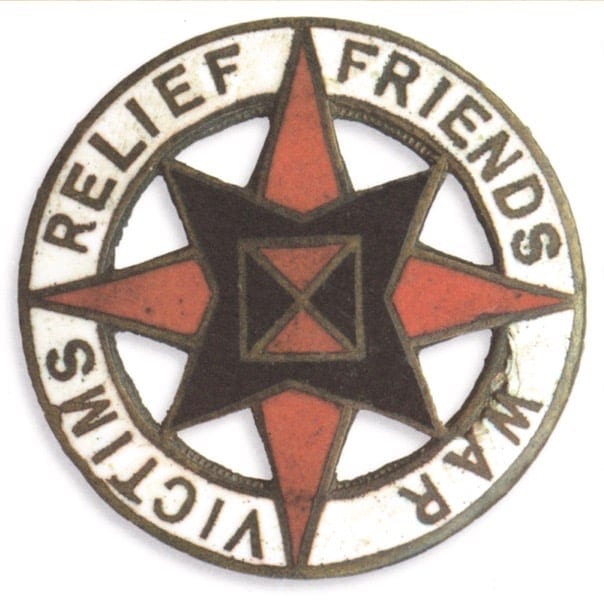
The red and black star emblem was the symbol of the London Daily News which funded the organisation when it was set up during the Franco-Prussian War in 1870. Emma Tozer of The Cottage in Betchworth, and Robert Trevelyn of The Shiffolds in Holmbury St Mary were both supporters of the relief fund.
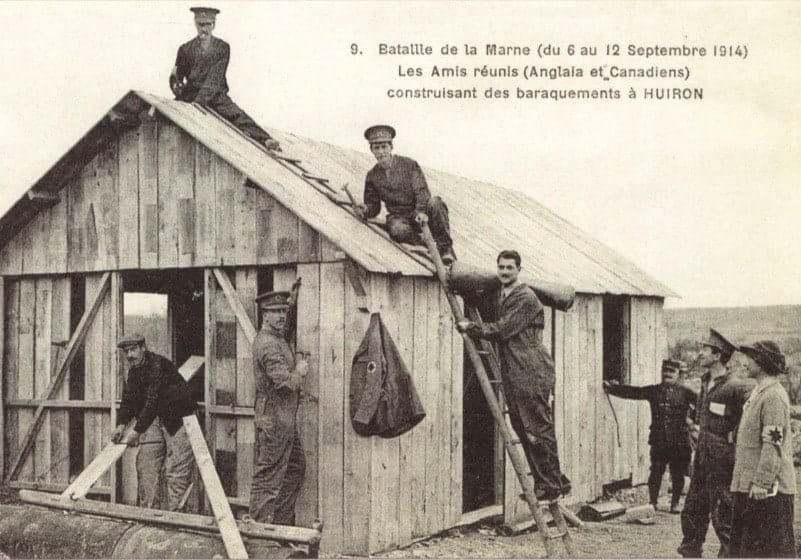
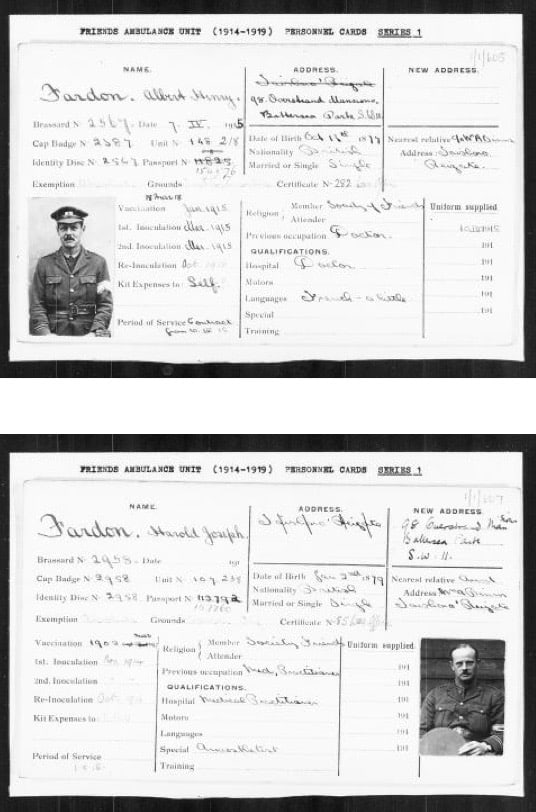
Dorking doctor Albert Fardon and his brother, Harold, volunteered with the Friends’ Ambulance Unit which ferried nearly 500,000 sick and wounded to and from hospitals during the war. It also ran hospitals, ambulance trains and dressing stations. In France and Belgium the FAU operated orphanages, provided evacuation and feeding centres, and ran typhoid protection programmes.
Albert and his brother had been brought up by an aunt in Reigate after their mother died of TB. Dr Fardon practiced as a doctor in Rose Hill, Dorking. Exempted from military service, he served with the FAU from April 1915 until January 1919. Queen Alexandra’s Military Hospital, where he worked in Dunkirk, was for a period a centre for typhoid cases.
The Fardons were based at the FAU’s Queen Alexandra’s Military Hospital in Dunkirk, remaining in France and Belgium for four years. Harold Marsh of Dorking served on an FAU hospital ship, and Stanley Jennings and Fred Hammond of Capel claimed exemptions from conscription as conscientious objectors in order to join the FAU.
The Friends’ War Victims’ Relief Committee provided aid for refugees and enemy aliens in Britain, and refugee camps, maternity hospitals, epidemic relief services, convalescent homes and schools in devastated France and Belgium. In 1916 Dr John Rickman of Rose Hill was given a six month exemption from conscription in which to qualify for long term exemption by joining a Quaker non-combatant unit. He joined the FWVRC and was posted to aid starving refugees in Southern Russia who were escaping from the German invasion.
Image : Albert and Harold Fardon Personnel Cards. © Dorking Quakers
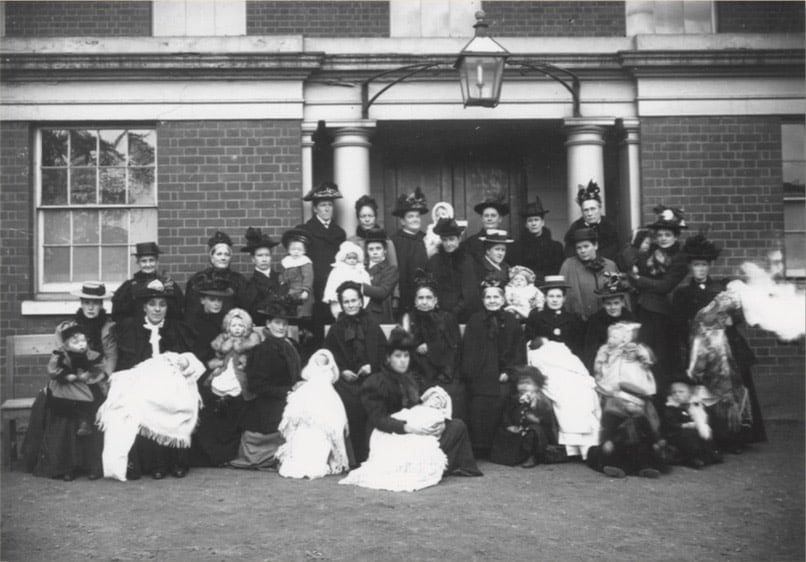
But Quaker views on the war did not generally find favour in the town. And the meeting suffered a decline in membership (at one point to just 10) during the war years. ‘Thinking’, records the Meeting’s minute book, ‘is too much like hard work for most people.’
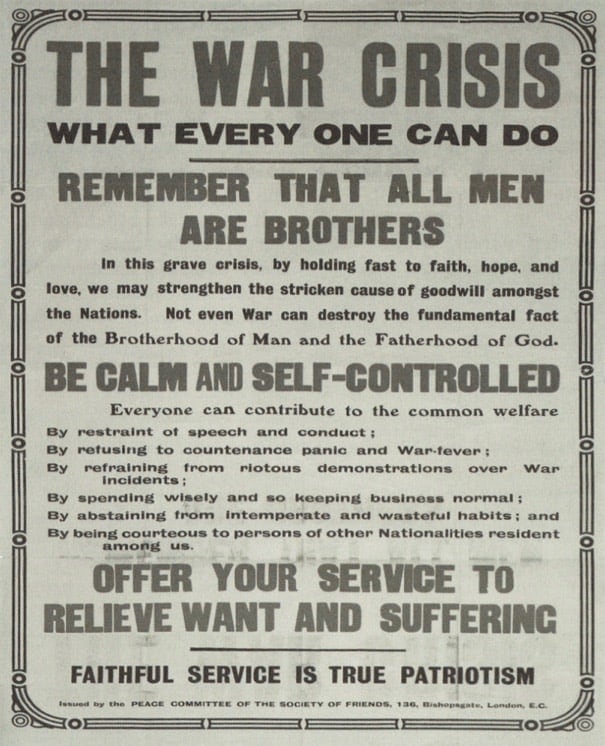
Poster urging Quakers to offer their services to relieve suffering rather than to fight. The Friends’ Ambulance unit operated under the auspices of the Red Cross. Unpaid volunteers paid for their own training. Initially neither government nor military wanted volunteers who were not subject to military discipline on the battlefield, but the scale of the humanitarian disaster in Belgium in the early months of the war lead to acceptance.
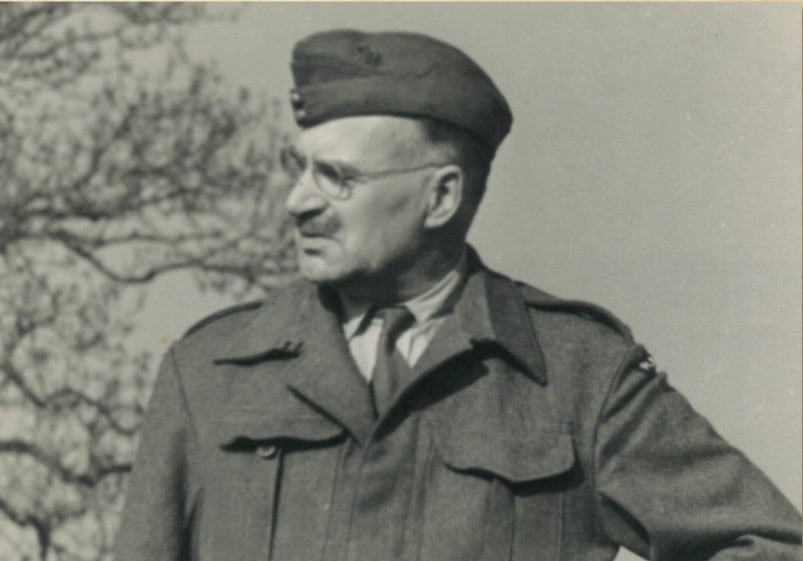
John Rickman’s mother Caroline ‘Annie’ Marsh was a member of the Reigate Marsh family, two of whom moved to Dorking and ran a draper’s shop at Pump Corner in Dorking. They were committed Quakers and largely responsible for the building of the meeting house on Butter Hill. It was through family connections that John ended up undertaking famine relief in Russia as members of his Marsh family had visited Tolstoy there. He married in Russia just after the October revolution.
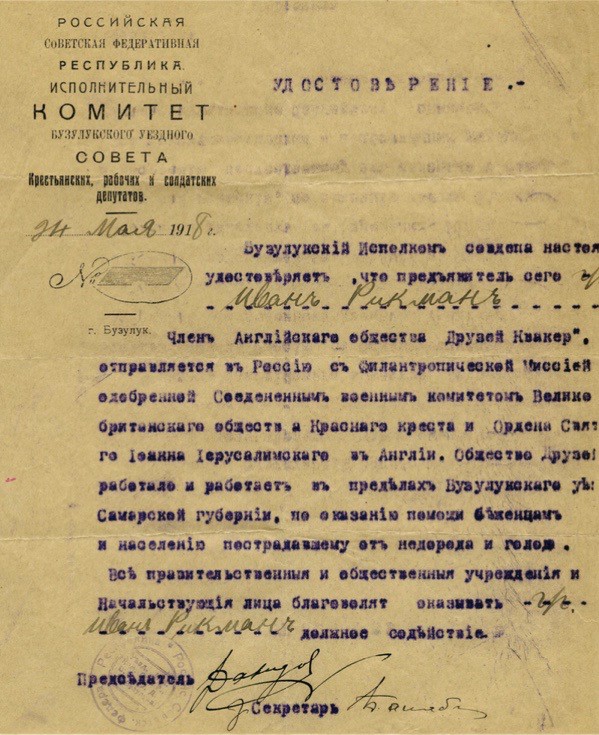
John Rickman’s Russian certificate of identity and safe passage. Issued by the Soviet of peasant workers and soldier deputies of Buzuluk County in May 1918, the certificate states that he is a member of the English Society of Friends travelling in Russia with a philanthropic mission approved by the British Red Cross and Order of St John to help refugees and the local population suffering from a poor harvest and starvation. Rickman’s party had to leave Buzuluk in October 1918 after fighting between the Red (revolutionary) and White (counter-revolutionary) forces reached the area. They escaped Russia via Siberia.
Last : To Serve or not to serve
Next : The Peace Campaign

